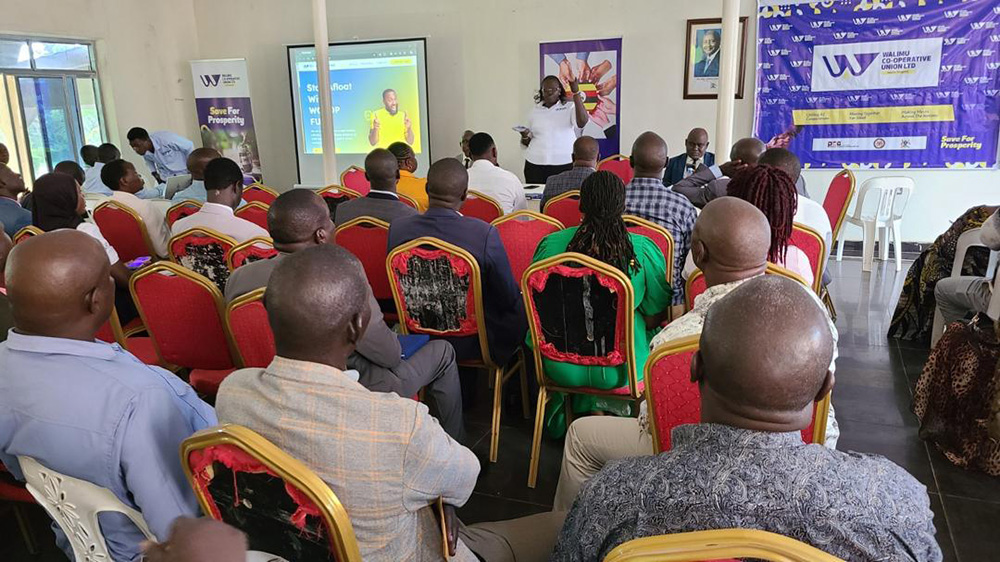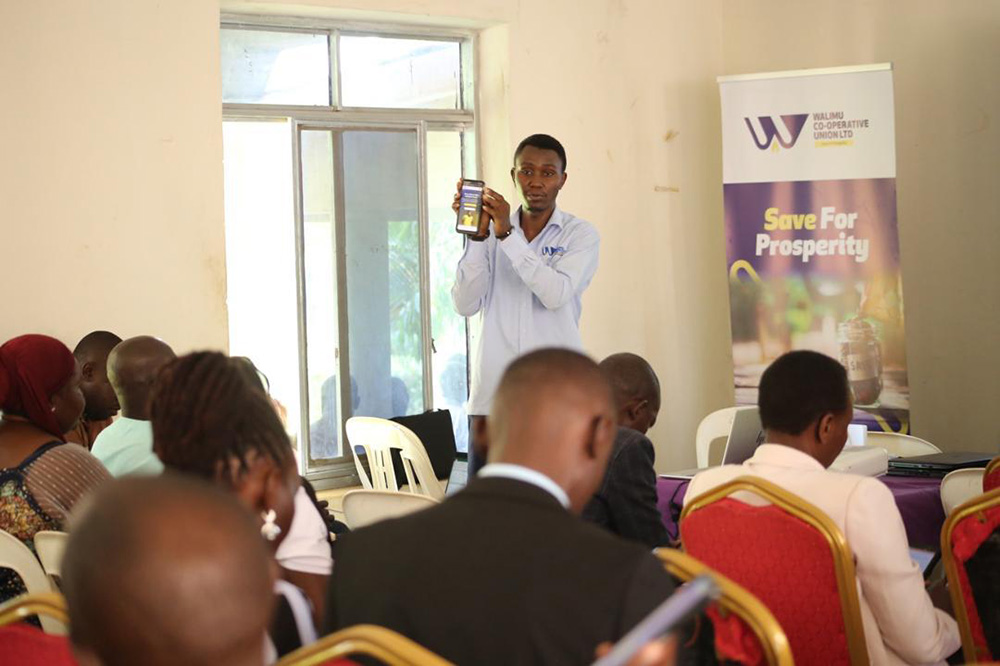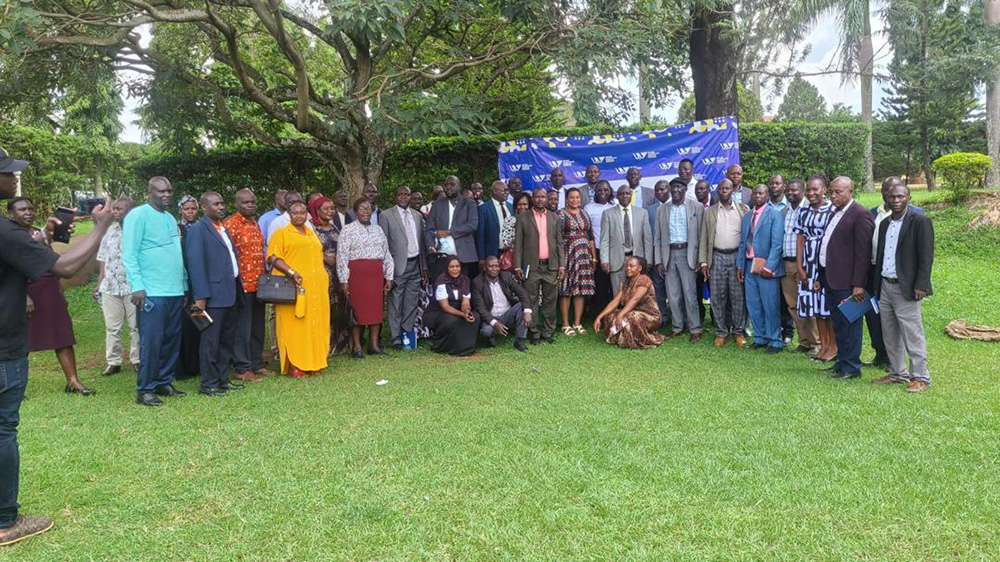Teachers’ SACCOS to receive sh500m each in new disbursement phase
Speaking during a stakeholders’ meeting in Iganga on August 26, 2025, Caroline Atai Kiyai, the general manager of Walimu Cooperative Union, stressed the importance of inclusivity in the process.
Caroline Atai Kiyai, the General Manager of Walimu Cooperative Union, addressing stakeholders during an engagement in Iganga on Tuesday, August 26, 2025. (Credit: Walimu)
By Hannington Mutabazi
Journalists @New Vision
_________________
Teachers across Uganda are set for a financial boost as the Walimu Cooperative Union rolls out the second phase of the teachers’ savings and credit cooperative organisations (SACCOS) fund disbursement.
The cooperative union has held a series of stakeholder engagements, beginning with the Teso and Busoga sub-regions.
Caroline Atai Kiyai, the General Manager of Walimu Cooperative Union, addressing stakeholders during an engagement in Iganga on Tuesday, August 26, 2025. (Credit: Walimu)
Speaking during a stakeholders’ meeting in Iganga on August 26, 2025, Caroline Atai Kiyai, the general manager of Walimu Cooperative Union, stressed the importance of inclusivity in the process.
According to Kiyai, engagements have already been conducted in districts such as Soroti, Mbale and Kumi, where the launch of the second phase took place on August 17, 2025. Officials including chief administrative officers, resident district/city commissioners, district education officers and district commercial officers were invited to take part.
She explained that the funds being disbursed were provided by President Yoweri Museveni under the Presidential Initiative for Teachers to improve their welfare, describing the initiative as one of the government’s most important interventions for addressing teachers’ financial needs.
The second phase has been designed to address shortcomings experienced during the first. Each SACCO at district level will receive sh500 million, with the possibility of larger allocations based on performance. Every SACCO will also operate a management information system to verify, process and provide quality loans to its members.
The first phase struggled with inadequate ICT infrastructure, which hampered loan processing. Kiyai noted that in this phase new systems will support smooth disbursement and loan recovery through payroll deductions, since teachers are government employees.

A staff of Walimu Cooperative Union demonstrating to stakeholders how the loan digital system works during the stakeholders’ engagement in Iganga on Tuesday, August 26, 2025. (Credit: Walimu)
Through the digitised loan application system, teachers will be able to apply using smartphones or designated devices. The system will also track teachers with existing bank loans, ensuring that repayments are deducted directly from the source.
The union expects these reforms to reduce the default rate by half, although some defaults may still occur due to delayed salaries or unavoidable circumstances such as death. District leaders will play a central role in monitoring and overseeing the release of the funds.
Of more than sh3 billion already allocated in the Teso sub-region, over sh2 billion has been repaid. The cooperative union recognised Kumi Progressive Teachers’ SACCO, Amuria Teachers’ SACCO and Kalaki Teachers’ SACCO for their exemplary repayment performance.
Stephen Olinga, national vice chairperson of the union, reaffirmed that the fund’s primary goal is to increase teachers’ incomes and promote financial independence through their SACCOs. He urged teachers to use loans productively to supplement their salaries and praised the best-performing SACCOs for disciplined repayment, which has qualified them for further support.
Moses Omagor, chairperson of Amuria Teachers’ SACCO, attributed their 97% repayment rate to strict vetting, close coordination with district education officials and peer appraisals. He explained that final loan approvals are made by the SACCO’s board to ensure fairness and accountability.
Amuria Teachers’ SACCO, with over 300 members, initially received sh280 million and currently has an outstanding balance of just sh60 million. With the additional sh500 million, it plans to expand credit access for its members.

Stakeholders pose for a photo with the heads of the Walimu Cooperative Union after the stakeholders engagement in Iganga on Tuesday, August 26, 2025. (Credit: Walimu)
According to Omagor, teachers’ most successful projects include poultry farming, goat rearing, retail businesses and support for school fees, which all contribute to economic resilience.
The new phase of funding is expected to stimulate further growth in teacher-led enterprises, expand financial inclusion and strengthen local economies across the country.
Since 2014, the government has allocated sh25 billion to support teachers through the Walimu Cooperative Union, aiming to help them reduce reliance on salaries. Today, there are over 200 teachers’ SACCOs nationwide.
